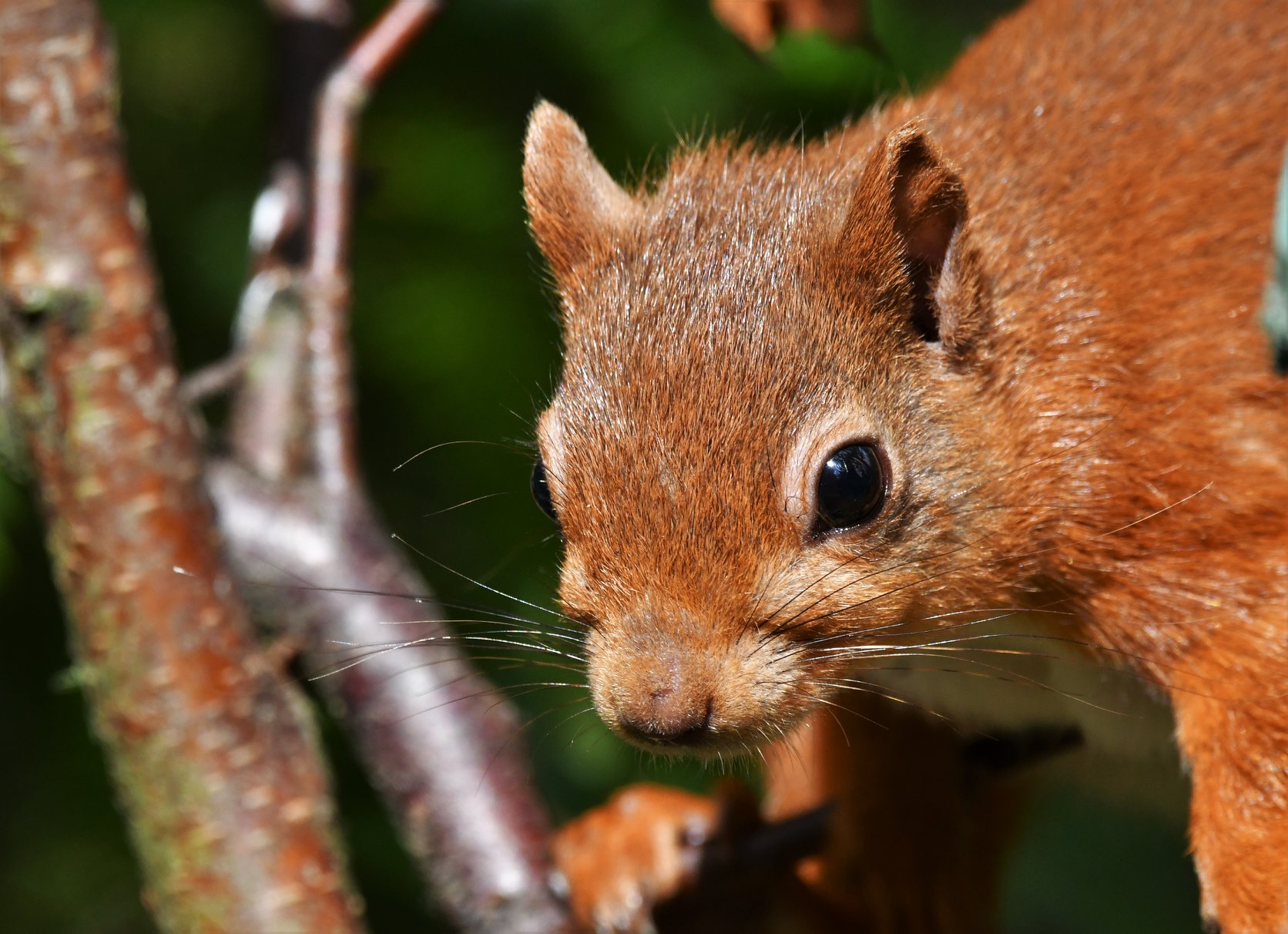Press Notice: Grey squirrel fertility control research hits key milestone

Oral contraceptives that could significantly reduce grey squirrel populations in the UK are displaying positive results in ongoing research, the UK Squirrel Accord (UKSA) has announced today.
UKSA is funding research into a fertility control for grey squirrels that will offer an additional, non-lethal method to manage the population of this species. The resulting oral contraceptive and species-specific feeding hopper will support reductions in grey squirrel numbers to protect red squirrels and trees.

Important progress has been made in the development of a contraceptive for grey squirrels in laboratory trials as part of research being carried out by a team at the Animal and Plant Health Agency (APHA), with further tests being carried out to ensure it is safe and effective.
Vital progress has also been made in developing methods to deliver oral contraceptives to populations of grey squirrels, which is essential for practical field applications.
APHA has shown that a feed hopper with a weighted door will exclude most other species of wildlife, while still allowing more than 70% of local grey squirrel populations to access and eat from them. APHA is now testing different methods of keeping red squirrels out of the feeders, so contraceptives could be used in areas where there are both types of squirrel. So far, research has suggested that body weight could be used to distinguish between greys and reds. No oral contraceptive has been used in the field at this stage of the research.
UKSA is celebrating reaching its funding target for the research phase of the grey squirrel fertility control development. UKSA’s funding focus will now shift to the landscape-scale field trials and testing needed for registration of the final products, and knowledge sharing and awareness raising activities. The four phases needed to deliver the fertility control are:
1. Research and development – ending January 2024
2. Landscape-scale trials – in development
3. Testing for registration – in development
4. Widespread availability of registered methods
Kay Haw, Director of the UK Squirrel Accord, said
“Wonderful to see support for this novel work increasing exponentially. We are incredibly thankful to everyone that donated to the research phase. Donations came from across the forestry and conservation sectors (including UKSA signatories), private individuals and estates, and grant-making organisations. We will now focus on fundraising for the next key phases of the programme and wider UKSA activities.”
Lord Kinnoull, Chair of the UK Squirrel Accord and Red Squirrel Survival Trust, said
“This is a vital milestone on the road to enabling forestry to play fully its part in the climate battle, while preserving our native broadleaf trees and allowing our native red squirrels to return.”
Rebecca Isted, Squirrel Policy Advisor, Forestry Commission, said:
“We have supported the grey squirrel oral contraceptive project from its inception and I’m optimistic these trials could eventually lead to a significant change of approach in the management of these animals.
“The Forestry Commission is currently updating the Government’s Grey Squirrel Action Plan, and will set out our plans to better understand and manage the negative impacts of grey squirrels in due course.
“Reaching the funding target is an amazing achievement and testament to the strength of the UK Squirrel Accord Partnership, of which we are proud to be a member.”
Vanessa Fawcett, Fundraising Director for Red Squirrel Survival Trust, said:
“Without effective conservation management, red squirrels could face further local extinctions across the UK. Research into developing an oral contraceptive for the grey squirrel is at an advanced stage. We are deeply grateful to all those who supported us so far on our journey to offer a new solution to effectively manage grey squirrel populations.”
Gideon Henderson, Chief Scientific Adviser at the Department of Environment, Food and Rural Affairs, said:
“Fertility control can be an effective method complementing other approaches to wildlife management. This UK Squirrel Accord & Defra funded study aims to produce an immuno-contraceptive that can be orally administered to grey squirrels through a species-specific delivery mechanism.
“This innovative research has great potential to provide an effective, easily-applied and non-lethal method for managing grey squirrel populations. It will help red squirrels – native to the UK – expand back into their natural habitats, as well as protecting UK woodland and increasing biodiversity.”
Environment Minister Lord Benyon, said:
“The grey squirrel is an invasive species that is causing untold damage in the British countryside where these pests continue to wreck our fledgling broad-leaf trees like oak by stripping bark, and disrupting the delicate balance of nature and biodiversity, whilst diminishing our ability to tackle climate change.
“That’s why we continue to support the UK Squirrel Accord and APHA as this important research on oral contraception shows promising signs that could help to eradicate the grey squirrel in the UK in a non-lethal way, as well as helping to recover our beloved red squirrel.”
Grey squirrels cause damage to woodlands by stripping bark from trees aged between 10-50 years, the young trees in a forest. They are also one the main reasons for local extinctions of red squirrels in large areas of the UK.
They target broad-leafed varieties, including oak, which are ecologically important because they support so many other species. It is estimated the UK is home to around three million of these invasive rodents.
For further information or to donate to support this important work, please see our website www.squirrelaccord.uk or contact info@squirrelaccord.uk
Notes to editors:
The UK Squirrel Accord (UKSA) is a UK-wide partnership of 41 leading conservation and forestry organisations, Government agencies and companies, with links to red squirrel community groups.
UKSA works collaboratively to preserve the UK’s wooded landscapes and associated biodiversity under the following aims to:
- Secure and expand UK red squirrel, Sciurus vulgaris, populations beyond current thresholds
- Ensure UK woodlands flourish and deliver multiple benefits for future generations of wildlife and people
Grey squirrels were intentionally introduced to sites in England and Ireland from 1876 to 1929. In 1930, their negative impacts on red squirrels and trees resulted in a ban on the importation and keeping of grey squirrels. They are now classed as invasive non-native species due to their negative impacts on red squirrels and woodland ecosystems.
The England Trees Action Plan committed to treble tree planting rates in England by the end of this Parliament, supported by more than £750 million through the Nature for Climate Fund to be spent by 2025 on peat restoration, woodland creation and management – above and beyond what was promised in the manifesto.
An update webinar to share more detailed information on progress with the grey squirrel fertility control research is planned for 13 July 2022: https://us02web.zoom.us/webinar/register/WN_KMCYY2VKS-uoI8MSD_nybg
Useful links
UK Squirrel Accord website: www.squirrelaccord.uk
Grey squirrel fertility control research page: https://squirrelaccord.uk/squirrels/fertility_control/
Grey squirrel fertility control research FAQs: https://s3-eu-west-1.amazonaws.com/media.squirrelaccord.uk/2021/06/UKSA_fertility_control_research_FAQs_June_2021_-_research_-_UK_Squirrel_Accord.pdf
Grey squirrel fertility control update 2021: https://youtu.be/jVHhIJxAUnQ



